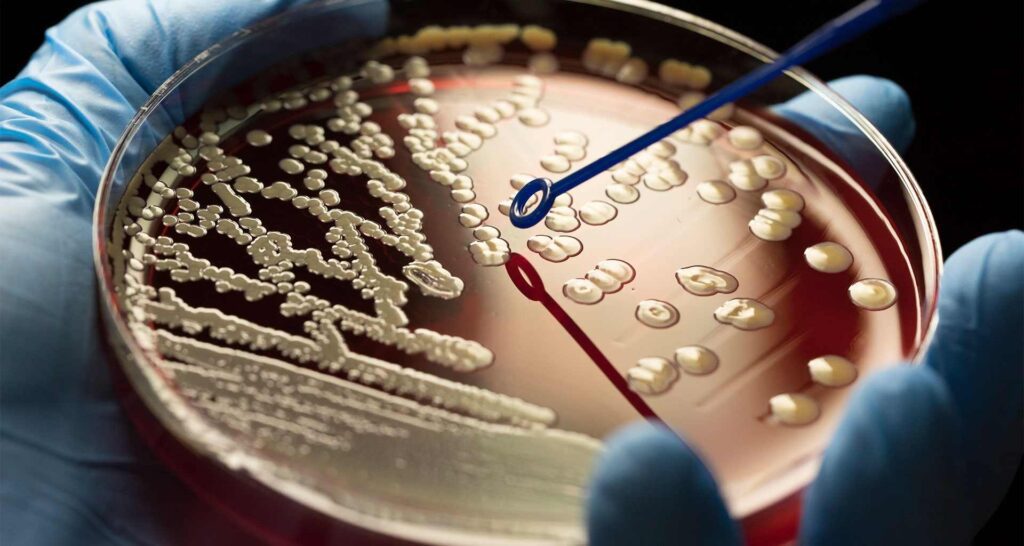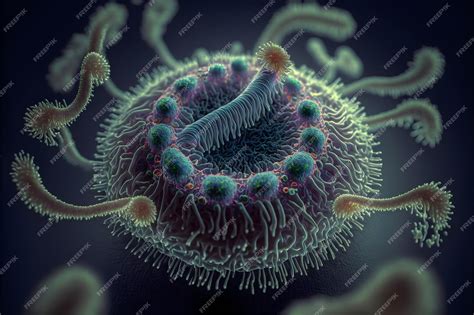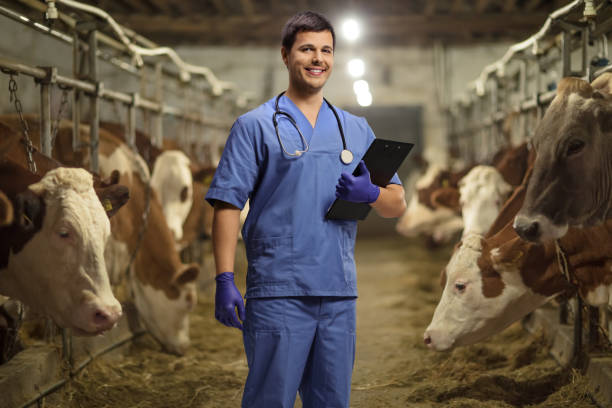Microbiology definition
Microbiology is the study of microscopic living organisms, commonly known as microorganisms or microbes. These include bacteria, viruses, fungi, protozoa, algae, and certain parasites. Microbiology is a fascinating and essential field of science because microbes affect every part of life on Earth from human health and disease to agriculture, the environment, and industry.

Although microorganisms are small, their impact is huge. The study of microbiology helps us understand how life works at a microscopic level and how we can use microbes to solve problems in health, industry, and the environment.
Summary of Microbiology
- Microbiology is the study of microscopic organisms like bacteria, viruses, fungi, and protozoa, with specialized fields such as bacteriology and virology.
- Microbiology plays a key role in innovation, offers diverse career opportunities, and helps solve global problems like disease outbreaks and pollution.
- It has a wide scope in medicine, agriculture, food, industry, and the environment helping improve health, increase crop yields, ensure food safety, and protect nature.
Table of Contents
Major fields of microbiology
1. Bacteriology

Bacteriology is the branch of microbiology that deals with the study of bacteria. It involves understanding their structure, classification, physiology, and roles in various environments. This field is essential in medicine for identifying disease-causing bacteria and in agriculture for studying soil bacteria that help plants grow.
2. Virology
Virology is the study of viruses and virus-like agents. It explores how viruses infect host cells, reproduce, and cause diseases. This field plays a key role in developing vaccines, understanding viral diseases like COVID-19 and HIV, and finding antiviral treatments.
3. Mycology
Mycology is the branch that focuses on fungi, including molds, yeasts, and mushrooms. It examines both the beneficial aspects of fungi, such as their use in fermentation and medicine, and their harmful effects, like causing infections in humans and plants.
4. Parasitology
Parasitology deals with the study of parasites, especially protozoa and helminths (worms) that live in or on other organisms. This field is vital for understanding diseases such as malaria and controlling parasitic infections in both humans and animals.
5. Phycology (Algology)
Phycology, also known as algology, is the study of algae. Algae are important for their roles in ecosystems and their use in food, fertilizers, and biofuel production. Phycologists also study harmful algal blooms that can damage aquatic environments.
6. Immunology
Immunology is the study of the immune system and how it defends the body against microbes. It includes research on how the body responds to infections, vaccines, and immune disorders. Immunology is essential in preventing and treating diseases through vaccine development.
7. Microbial Genetics
Microbial genetics focuses on the genetic makeup of microorganisms. It studies how genes are inherited, mutated, and expressed in microbes. This knowledge is crucial in biotechnology and genetic engineering for developing new medicines and industrial products.
8. Microbial Ecology
Microbial ecology examines how microorganisms interact with each other and their environments. It investigates their roles in natural processes like nutrient cycling and their use in environmental cleanup efforts such as bioremediation.
9. Industrial Microbiology
Industrial microbiology involves the use of microbes to produce industrial products like alcohol, organic acids, enzymes, and biofuels. It combines microbiology with biotechnology to develop sustainable production methods.
10. Medical Microbiology
Medical microbiology is the study of microbes that cause diseases in humans. It focuses on identifying pathogens, understanding their disease mechanisms, and developing treatments, diagnostics, and preventive measures.
11. Agricultural Microbiology
Agricultural microbiology looks at the role of microorganisms in agriculture. It includes studying soil microbes, plant pathogens, and beneficial microbes that enhance plant growth, leading to healthier crops and improved yields.
12. Food Microbiology
Food microbiology studies the role of microorganisms in food production, spoilage, and safety. It is important in developing fermentation processes, preserving food, and preventing foodborne illnesses.
13. Environmental Microbiology
Environmental microbiology focuses on microbes in natural environments like soil, water, and air. It is essential for pollution control, waste management, and maintaining ecosystem health.
14. Pharmaceutical Microbiology
Pharmaceutical microbiology is concerned with the role of microbes in the production and quality control of pharmaceutical products. It ensures that medicines are free from harmful microbes and safe for consumption.
15. Veterinary Microbiology

Veterinary microbiology deals with microbial diseases in animals. It is important for animal health, food safety, and controlling zoonotic diseases that can be transmitted from animals to humans.
Scope of Microbiology
1. Healthcare and Medicine
Microbiology has a vast scope in healthcare as it helps identify the causes of infectious diseases, develop diagnostic tools, and produce antibiotics and vaccines. It also plays a critical role in managing pandemics and monitoring antibiotic resistance.
2. Agriculture
In agriculture, microbiology contributes to improving crop production through beneficial microbes and controlling plant diseases. It supports the development of biofertilizers and biopesticides for sustainable farming practices.
3. Food Industry Microbiology
is vital in the food industry for producing fermented foods, ensuring food safety, and preventing spoilage. It helps detect and eliminate harmful microbes in food processing and storage.
4. Industry and Biotechnology
The industrial and biotechnological applications of microbiology include the production of enzymes, alcohol, biofuels, and pharmaceuticals using microbial fermentation and genetic engineering techniques.
5. Environmental Protection
Microbiology plays a key role in protecting the environment through bioremediation, which uses microbes to clean up pollutants. It also helps maintain soil and water health by recycling nutrients.
6. Research and Education
Microbiology is a core subject in biological sciences, contributing to research in genetics, molecular biology, and cell biology. It provides a foundation for scientific discoveries and educational advancements.
7. Space Exploration (Astrobiology)
Microbiology helps study life in extreme environments on Earth, which provides insights into the possibility of life on other planets. This field is important for long-term space missions and astrobiology research.
8. Public Health and Hygiene
Microbiologists work to monitor disease outbreaks, improve sanitation, and promote hygiene. Their efforts ensure clean air, water, and food, reducing the risk of infectious diseases.
9. Bioinformatics and Genomics
Microbiology integrates with bioinformatics to analyze microbial genomes. This helps in identifying new species, tracking disease outbreaks, and designing genetically modified organisms for various applications.
10. Job and Career Opportunities
The field of microbiology offers diverse career options in hospitals, research labs, pharmaceutical companies, food industries, environmental agencies, and government health departments. It is a growing field with significant demand for skilled professionals.
Conclusion
Microbiology is a powerful and important branch of science that helps us learn about very small living things like bacteria, viruses, fungi, and other microbes. Even though they are tiny, these organisms play a big role in our lives. They can cause diseases, but they can also help us in many ways—like making medicines, cleaning the environment, growing better crops, and keeping our food safe.
The study of microbiology is used in many fields such as healthcare, agriculture, food industries, and environmental protection. It helps scientists and researchers find solutions to big problems like infections, pollution, and food spoilage. Microbiology also supports new inventions and discoveries through research and technology.
In simple words, microbiology helps us protect health, grow food, keep the planet clean, and create a better future. It is a subject full of opportunities, learning, and real-life applications that benefit both people and the environment.
Frequently Asked Questions
Who is the father of microbiology?
Antonie van Leeuwenhoek (1632-1723) is widely considered the father of microbiology. He was a Dutch scientist and lens maker who was the first to observe and describe microorganisms, which he called “animalcules,” using his own self-made microscopes.
Define bsc microbiology?
BSc Microbiology is a bachelor’s degree where students learn about tiny living things like bacteria, viruses, and fungi. It teaches how these microbes work, how they affect humans, animals, plants, and how we can use them in health, farming, food, and the environment.
Define Genomics?
Genomics is the study of all the genes in an organism, including how they work, interact, and affect the body. It helps us understand how genes influence traits, diseases, and how living things function and evolve.
Related Articles




